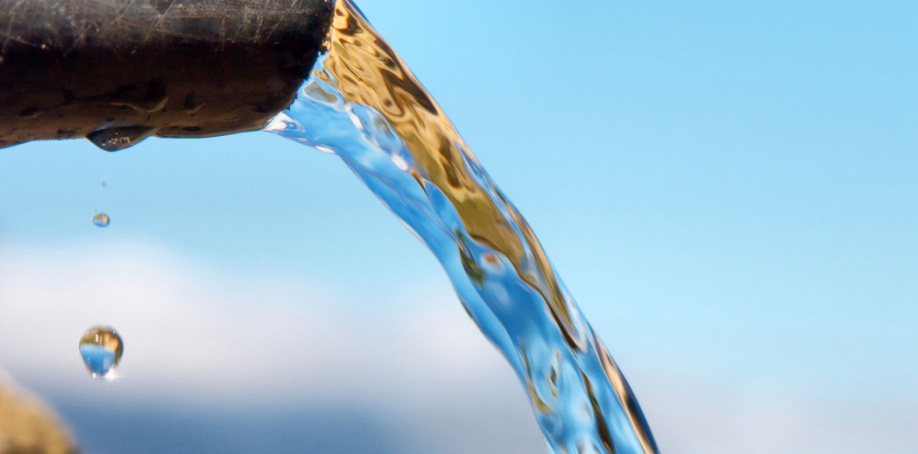5355 West
Herriman Main Street
Herriman, UT 84096
- City Council
- Planning Commission
- City Administration
- Gov 101
- Property Tax
- Public Notices
- Ordinances and Code
- Police Department
- Community Services
- Animal Services
- City Services
- City Recorder
- Court
- Elections
- Building
- Communications
- Human Resources
- ITS
- Master Plans & Capital Facility Plans
- Engineering
- Finance
- Planning and Zoning
- Public Works
- Master Fee Schedule
- Transparency
- Hunting Information

Water
Clean. Safe. Responsible.
Herriman's Water Quality
We understand the importance of providing clean, safe, and reliable water to our residents. Rest assured that your drinking water meets and exceeds the rigorous standards set by the Environmental Protection Agency (EPA) and the State of Utah Division of Drinking Water.
Your Water is Safe
It's natural to have concerns about the water you drink, but it's essential to know that all drinking water, whether from your tap or bottled, contains at least some level of substances or, as they're defined in regulations, "contaminants." Even boiling water won't remove all impurities. However, we're proud to say that our water consistently meets stringent safety standards.
Rigorous Testing
Maintaining water quality is our top priority. To ensure your water remains safe, we employ a comprehensive testing regimen that goes beyond what is required by the EPA and State of Utah.
Distribution System Sampling
- Bacteria testing: 70+ tests per month
- Chlorine testing: 90+ tests per month
- Fluoride testing: 40+ tests per month
- Disinfection byproduct sampling: 8 samples per quarter
- Lead and copper: 30 samples every three years
- Miscellaneous sampling: throughout the year, we monitor hardness, conductivity, salinity, and PH levels. These samples are taken throughout the year to monitor blending and general quality of the system.
Water Source Samples
- Inorganics & metals (chloride, sodium, carbonate, alkalinity, iron, manganese, mercury, nickel, zinc, copper, lead, arsenic)
- Nitrates (fertilizers, septic systems)
- Pesticides & herbicides (residential and agriculture influences)
- Radionuclides (naturally occurring radium, radon, uranium)
- Sulfate, sodium, total dissolved solids (TDS) (naturally occurring minerals in soil and rock)
- Volatile organics (solvents, paints, pharmaceuticals, refrigerants)
Annual Water Quality Report (Consumer Confidence Report)
By federal regulation, the City is required to publish test results and information in a Consumer Confidence Report. The report is published by June each year and contains test results from the previous year. The report linked below is for the year 2022 and was published in 2023. A 2024 edition will be published in coming months.
Herriman's Water Hardness
Groundwater in Herriman and the surrounding region contains high levels of calcium, magnesium, and other minerals leading to what is commonly known as "hard water." Hard water isn't unique to us, and Utah is at the top of the list when it comes to hard water in the United States (according to the U.S. Geological Survey). And while it is not a health hazard, it can be a nuisance, leaving mineral deposits on dishes, shower doors, and appliances, even if it’s treated.
Water Hardness Measurements and Regulations
Federal Recommendation
Total Dissolved Solids (TDS) is a secondary drinking water standard by the Environmental Protection Agency, which means the EPA does not consider TDS a health hazard. The EPA recommends treatment for water with more than 500 mg/l of TDS but it is not required.
State of Utah Regulation
Water in Utah is generally harder than almost every other state, simply based on geography and how water occurs naturally. The State of Utah has a maximum standard for drinking water of 2,000 milligrams per liter (mg/l) for TDS. However, if the TDS level is more than 1,000 mg/l, the water supplier must demonstrate that no better water is available. Three of Herriman’s groundwater (underground) sources have TDS above 1,000, so water from these sources is blended (mixed/diluted) with water from the regional Jordan Valley Water Conservancy District. JVWCD water averages about 250 mg/l of TDS.
Measuring Hardness
Grains per gallon (gpg) is the most common way to measure water hardness. Though gpg is not regulated like TDS, gpg and TDS often go together.
How Hard is Herriman Water?
Measured in grains per gallon, water is generally considered soft under 4 gpg, moderately hard at 4-7 gpg, hard at 7-10 gpg, and very hard at 10+ gpg. Local Herriman wells are usually between 25-60 gpg, while Jordan Valley Water Conservancy District water is usually 10-12 gpg. So water from Herriman and several surrounding areas is very hard.
You may naturally ask, if Jordan Valley Water Conservancy District water is available to us, why not just use that all the time to reduce the water hardness in our homes?
The drawback of using Jordan Valley Water is that it costs about four times as much as producing from local wells (average of $170 per acre-foot from local sources; $690 per acre-foot from JVWCD). The City has historically used local sources and mixed them with JVWCD water throughout the year, with an additional heavy supply from JVWCD in the warmest months due to higher landscape water usage.
However, due to the extreme hardness and undesirable aesthetic nature (taste, appearance, and even smell) of local water sources, the City Council has decided to exclusively use Jordan Valley water during the off-peak season starting in fall 2024.
More Questions? Ask us!
At Herriman City, we remain committed to providing you with safe, reliable, and affordable water. If you have any questions or concerns about your water quality, please don't hesitate to reach out to us or visit the Water FAQ webpage.
Contact Us
Hours
7:30 a.m. - 5:30 p.m. | Monday - Friday
Phone
After hours/emergency on-call:
Option 1: WaterLuke Sieverts • Water Manager
Phone: 801-446-5323 | Email

Justun Edwards • Director of Public Works
Phone: 801-446-5323 | Email

